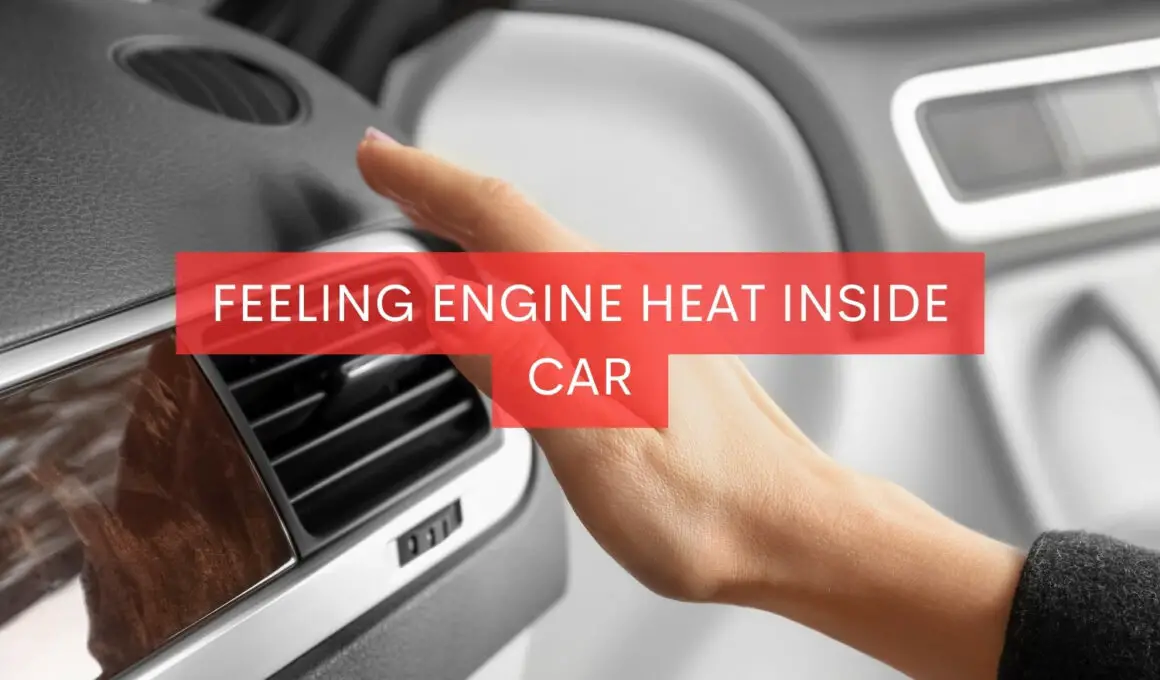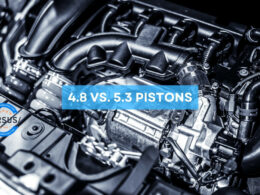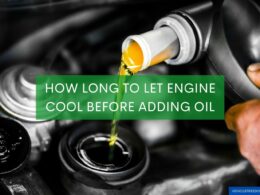In This Article Show
One problem that often concerns drivers is the unusual feeling of engine heat inside the car. While it’s normal to feel some warmth, especially during hot weather or after a long drive, there’s a significant difference between ambient heat and excessive engine heat entering the cabin.
Feeling excessive engine heat inside your car is uncomfortable and can signal underlying mechanical issues that need immediate attention. Ignoring such signs can lead to more significant problems, possibly even causing severe damage to your car’s engine and other components.
Understanding the causes behind this issue is the first step toward a solution.
In this article, I will use my years of hands-on experience to guide you through the potential causes of this problem and provide practical solutions.
The Importance of a Properly Functioning Car Cooling System
Your car’s cooling system plays a crucial role in maintaining the optimal temperature of the engine. As a seasoned mechanic with over 15 years of experience, I’ve seen firsthand how a compromised cooling system can lead to various problems, including the uncomfortable feeling of engine heat inside the car.
The primary function of the car’s cooling system is to remove excess heat from the engine, thus preventing it from overheating. It achieves this through a network of components such as the radiator, water pump, thermostat, and coolant, all working together to absorb, transport, and dissipate heat.
When the cooling system functions correctly, it maintains an ideal balance, ensuring the engine operates optimally. This balance is not only critical for the performance and efficiency of the engine but also contributes to the comfort inside the car cabin.
However, this balance is disturbed if there’s a fault in the cooling system—be it a leak, a clogged radiator, or a failed thermostat. The engine starts running hotter, and this excess heat can eventually make its way into the car, causing discomfort to the occupants.
This is why a properly functioning cooling system is crucial not just for your engine’s health but also for a comfortable driving experience.

Potential Causes of Feeling Engine Heat Inside the Car
There are a few potential causes that might explain why you’re feeling excessive engine heat inside your car. While it’s always a good idea to consult a professional if you notice such issues, understanding these potential causes can help you communicate more effectively with your mechanic and make more informed decisions.
1. Faulty Cooling System
A faulty cooling system is one of the most common reasons for feeling engine heat inside your car. As mentioned earlier, the cooling system plays a critical role in dissipating heat produced by the engine.
If any component of this system fails – be it the water pump, thermostat, or radiator – the heat dissipation process is compromised. The engine then runs hotter, and you might start to feel this excess heat inside the cabin.
Signs of a faulty cooling system can range from an illuminated check engine light, fluctuating temperature gauge to visible coolant leaks. Ignoring these signs can lead to more serious damage, such as a blown head gasket or even a cracked engine block.
2. Degraded Heat Insulation
Over time, the heat insulation in your car, designed to shield the interior from the engine’s heat, can degrade.
This degradation can occur due to aging, repeated exposure to high temperatures, or physical damage. Once this insulation is compromised, heat can easily seep from the engine into the car’s cabin.
Signs of degraded heat insulation might be less obvious but include a consistently hotter cabin and the lingering smell of hot metal or burning carpet.
3. Damaged Heat Shield
The heat shield is another crucial component that helps keep the engine heat from reaching the cabin. This shield, typically made of metal, is strategically placed to deflect the heat produced by the engine and the exhaust system.
If this shield is damaged or dislodged, you might start to feel more heat from the engine inside your car.
Indications of a damaged heat shield can include rattling noises from beneath the car, especially when starting the engine or accelerating.
Troubleshooting and Fixes
Armed with an understanding of the potential causes, let’s now focus on troubleshooting these issues and applying the necessary fixes. Remember, while a car-savvy owner can perform some of these steps, others might require professional intervention.
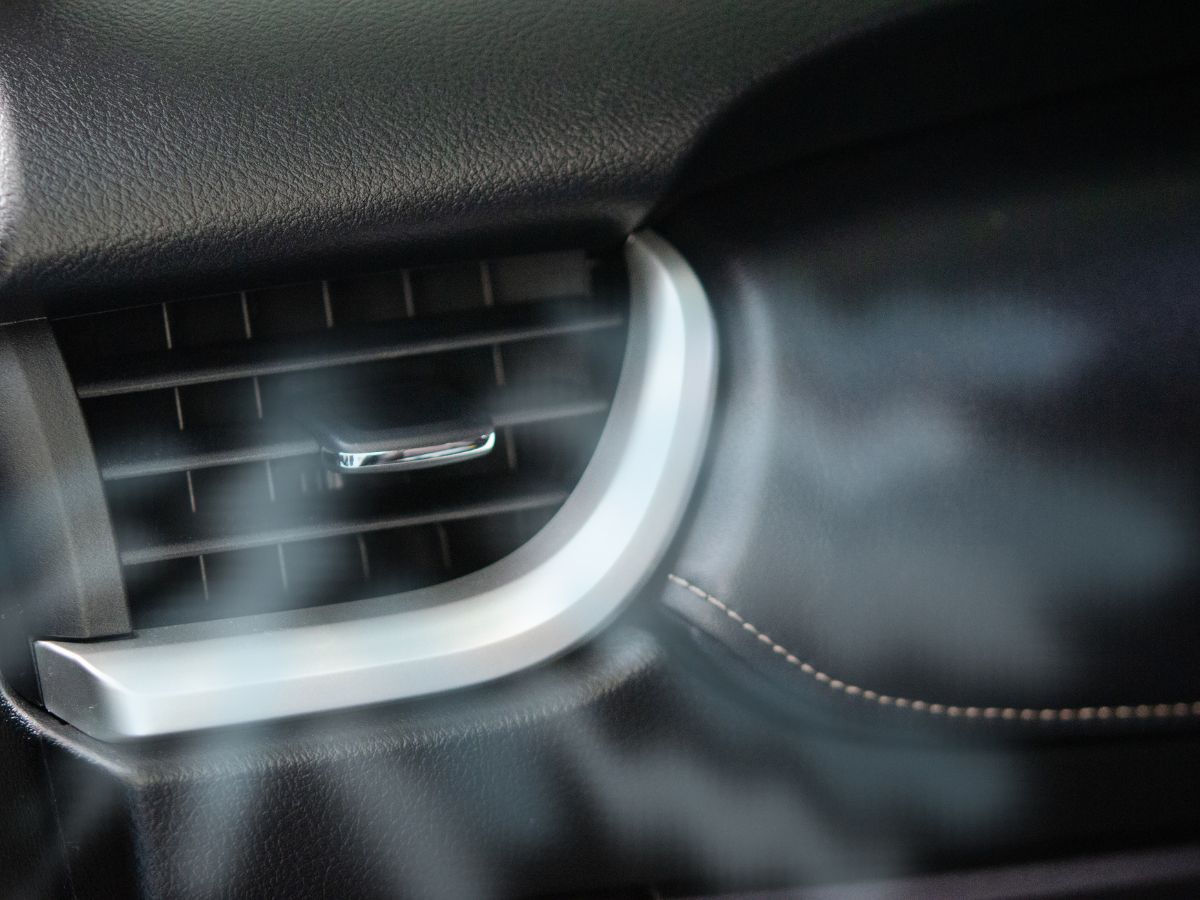
1. Repairing/Replacing the Cooling System
If you suspect the cooling system is faulty, the first thing to do is to check for visible signs such as coolant leaks, an unusually high reading on the temperature gauge, or a check engine light.
Inspect the radiator for any visible blockages or damage, and ensure the coolant is at the appropriate level and not contaminated. Listen for any unusual noises that could indicate a failing water pump.
If these checks don’t yield any results, or if you’re not comfortable performing them, it might be time to visit your mechanic. They can perform a thorough examination, and if necessary, repair or replace the faulty components.
2. Replacing Car Heat Insulation
If your car’s interior consistently feels hot, you may want to inspect the heat insulation. This task can be challenging as the insulation is often hidden beneath the carpeting or within the car’s panels.
In case of significant wear or damage, the insulation might need to be replaced. While some handy car owners may feel comfortable doing this, the process can be labor-intensive and requires a certain level of expertise.
Therefore, professional assistance is often the best route.
3. Repairing/Replacing the Heat Shield
A rattling noise from beneath the car usually identifies a damaged heat shield. If you suspect a damaged heat shield, it’s best to have it inspected by a professional.
The heat shield operates in high-temperature areas and is often located in hard-to-reach places, making it a challenging DIY project.
Preventive Measures to Avoid Engine Heat Inside the Car
Prevention is always better than cure. Regular maintenance checks can help identify potential issues before they become serious problems. Here are some preventive measures that can help avoid the discomfort of feeling engine heat inside your car:
Routine Cooling System Checks
Ensure to check your cooling system components regularly. This includes inspecting the coolant level, checking for leaks, and observing the temperature gauge while driving. If the engine seems to be running hotter than usual, it’s time to have it checked by a professional.
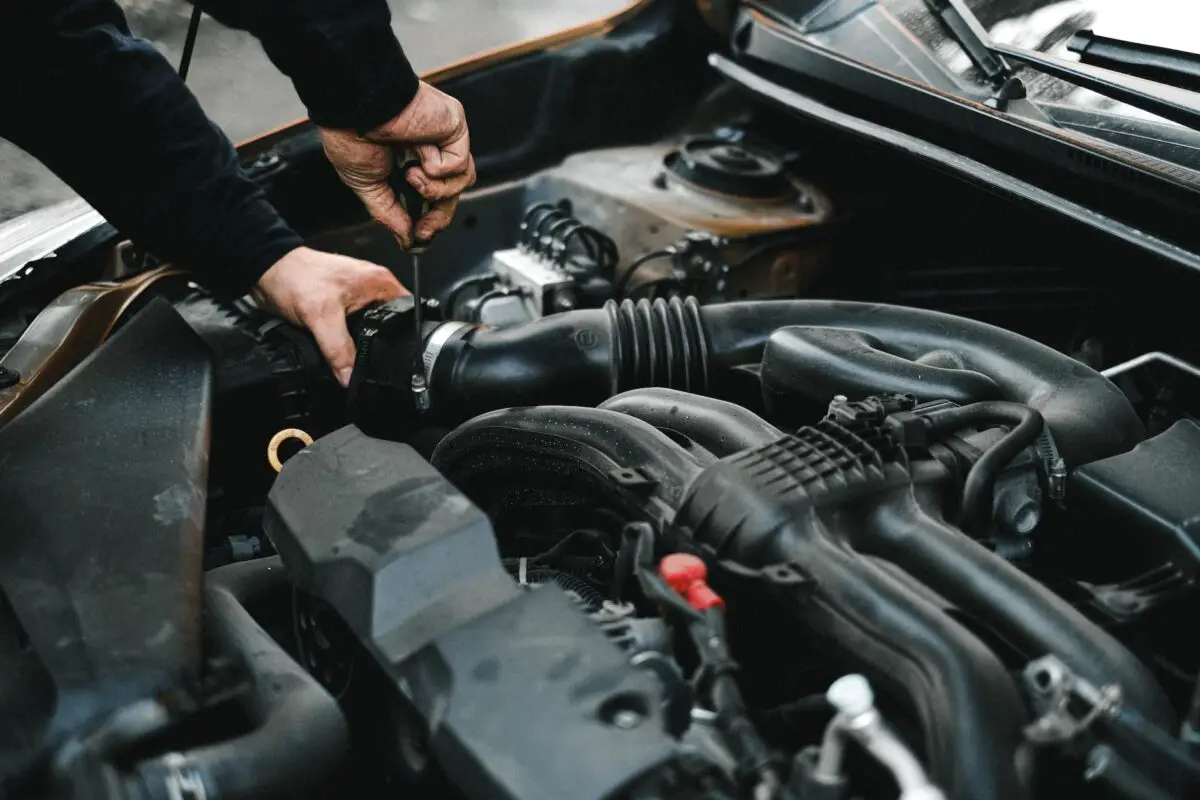
Regular Inspection of Heat Insulation and Heat Shield
Regularly inspect your car’s heat insulation and heat shield for any signs of damage. While these checks may require some effort, they can prevent more significant issues in the future. If you notice any signs of wear or damage, seek professional help.
Timely Repairs
One of the most important preventive measures is addressing issues as soon as they arise. Ignoring early warning signs can often lead to more serious damage and higher repair costs. For instance, a minor coolant leak left unchecked could lead to an overheating engine and significant damage.
Regular Servicing
Regular servicing by a professional mechanic ensures that your car stays in good health. They can spot potential issues that might be difficult for an untrained eye to catch.
By following these preventive measures, you can enhance your driving comfort and prolong the lifespan of your car.
Wrapping it up
Feeling excessive engine heat inside your car can be an uncomfortable experience, but it’s often a symptom of an underlying issue that needs attention. Whether it’s a faulty cooling system, degraded heat insulation, or a damaged heat shield, recognizing the cause is the first step toward a solution.
Remember, while some troubleshooting can be done independently, never hesitate to seek professional help when needed.






